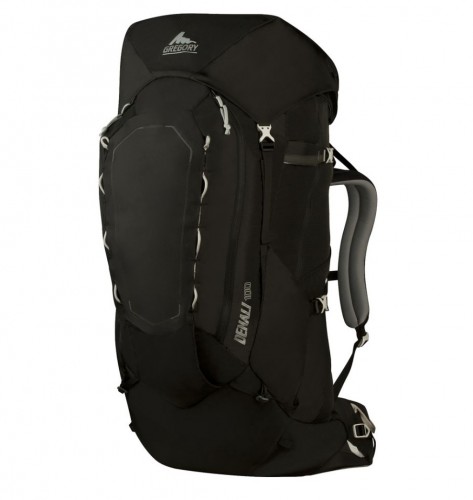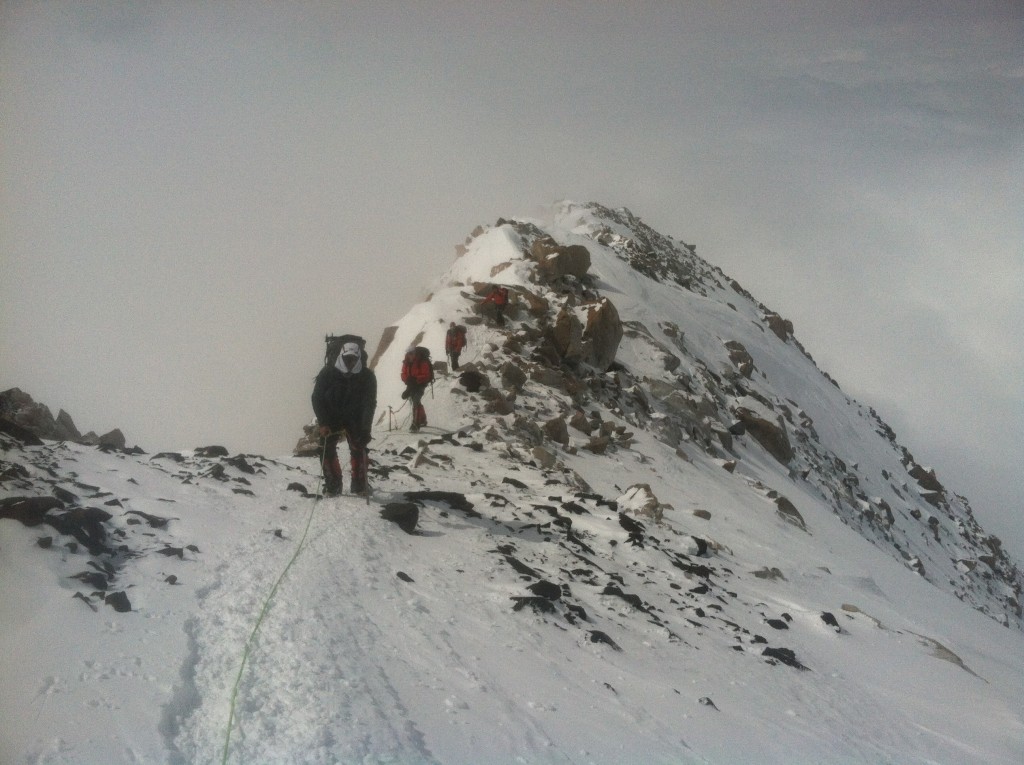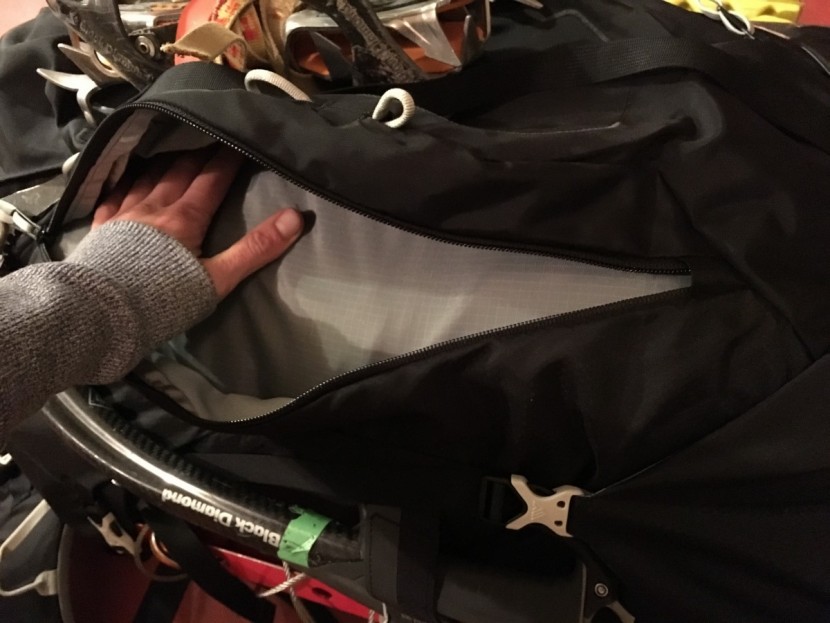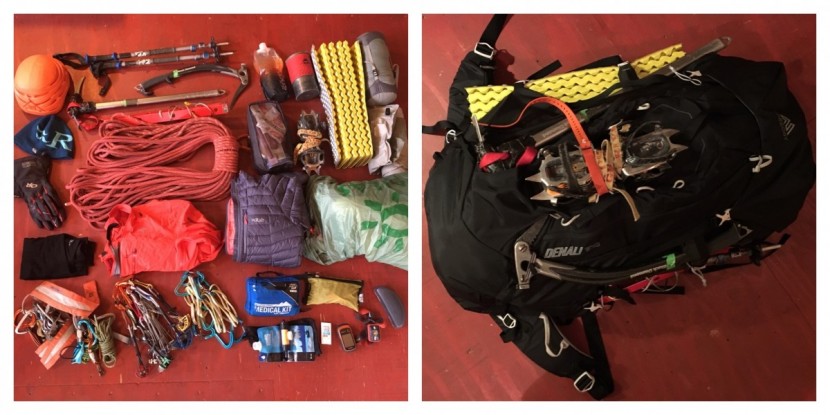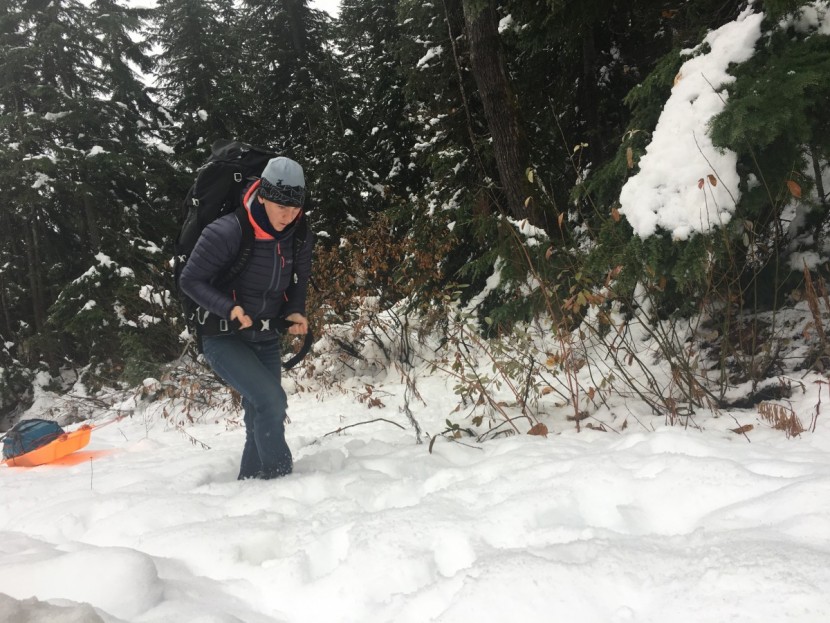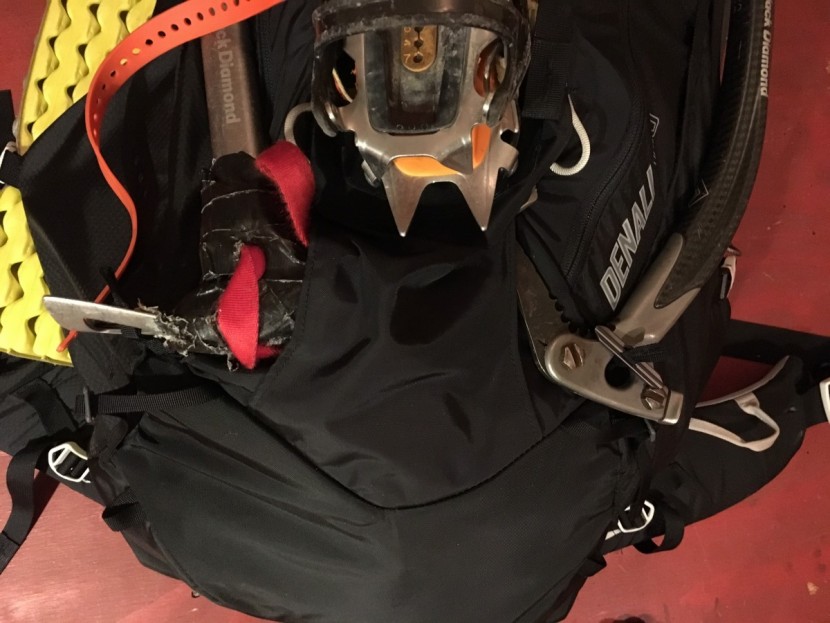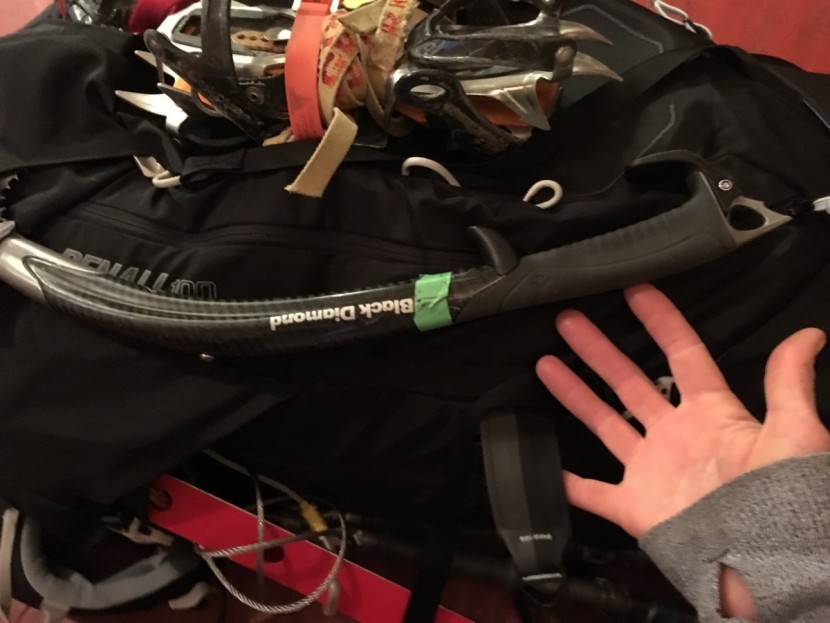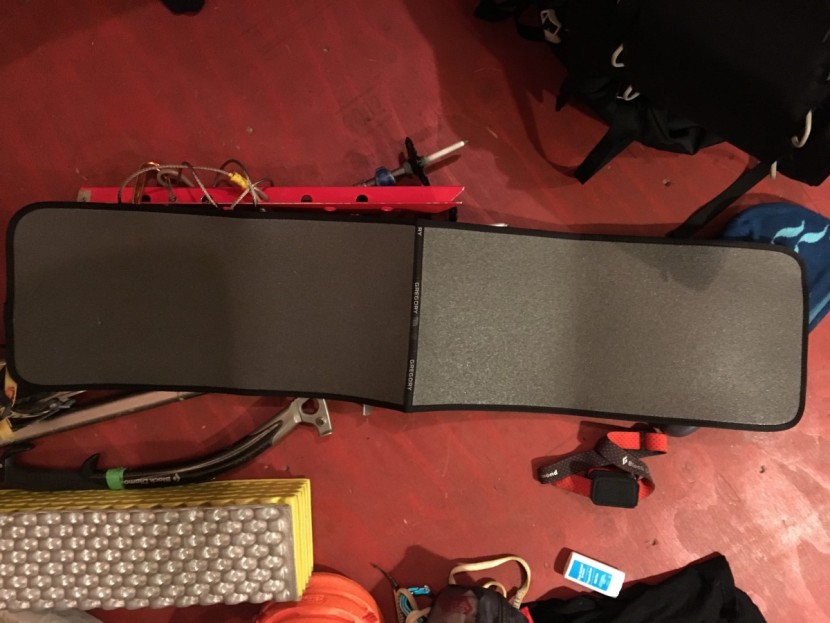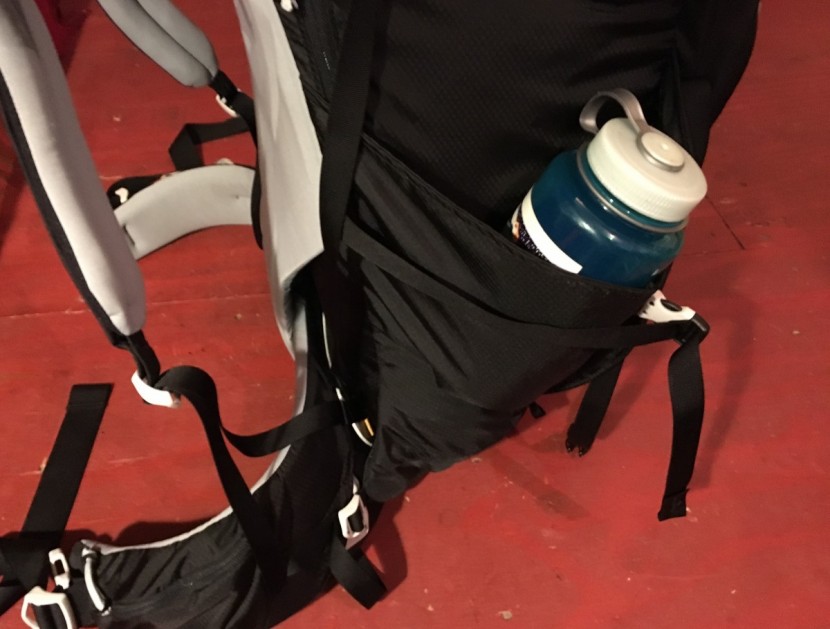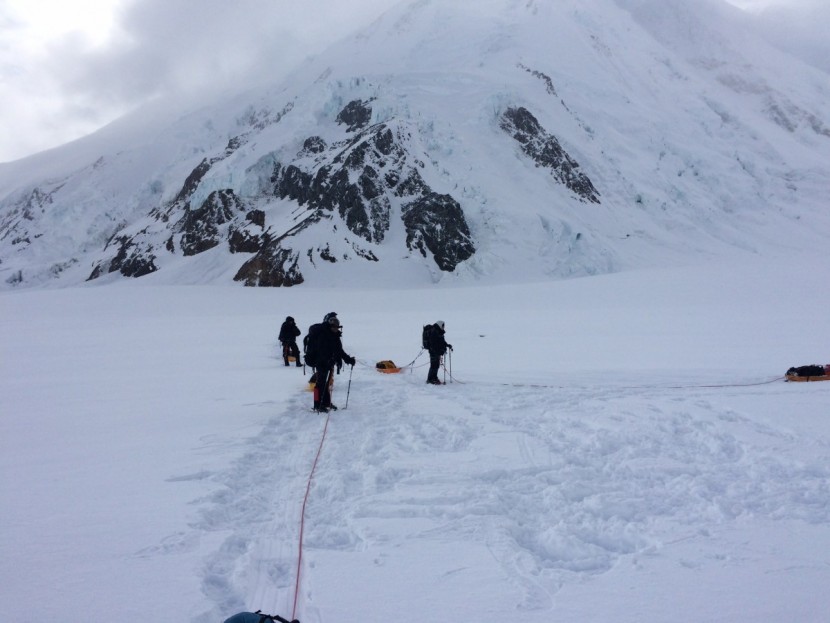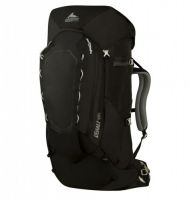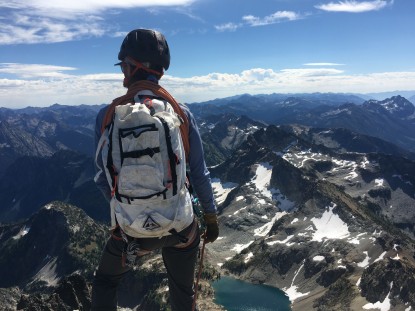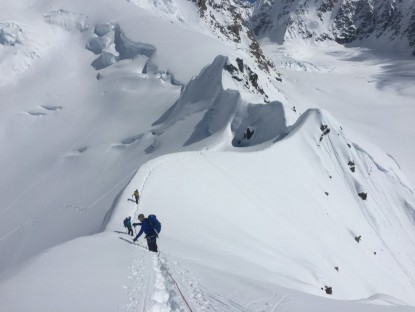Gregory Denali 100 Review

Our Verdict
Our Analysis and Test Results
The Denali 100 is a great expedition backpack, specially tailored to the needs of climbers on Denali's popular West Buttress route.
Versatility
Almost as a rule, an expedition pack is a terrible all-rounder. Browse the rest of our review for a smaller pack, something in the 30-50 liter range, if you're looking for a more versatile model (though that size range won't be useful on most expeditions).
We took this pack out on smaller test trips to round out our testing, but it is not a backpack to take for a day of cragging at your favorite rock climbing area. It is not a pack that would go off the ground with us for multi-pitch climbs, and it's also not a pack we would take backcountry skiing, ice climbing, or on mountaineering trips of less than one week. The Denali is an expedition pack. It is HUGE. As such, it carries best when it is full, or mostly full, and it is floppy, heavy, and awkward when it is empty.
Weight to Volume Ratio
The Denali is a hefty 6.3 pounds, though it's still not as heavy as our early 2000s Arc'teryx Bora 80 liter pack. Mountaineering and backpacking backpacks have come a long way in a relatively short amount of time, with lighter materials and simpler suspension.
However, durability is wildly important when you're on a weeks-long expedition, so we didn't penalize this pack too much for being so much heavier. Plus, as you add volume and carry more stuff, you need more robust materials and beefier suspension.
Comfort
The Denali carried comfortably in a broad range of situations, which is relevant to a climb of, say, Denali (one of the 'Seven Summits'), where you will be hauling loads to a high camp, then carrying a relatively light and empty pack back down to your current camp. The frame above the shoulder straps curves gently away from the head, and there is a semi-circular cutout where your head typically rests. We enjoyed the drastically improved range of motion and comfort for our head and neck while carrying this pack.
We hauled expedition sleds with this pack as well, and we were impressed by the balance and relative comfort. This is likely because Gregory designed specific pull loops which are perfectly oriented to haul a sled efficiently. We've been rigging sleds onto backpacks without them for years, but those haul loops do make it ride just a little bit better, and they don't add any notable weight, bulk, or hassle. They also make attaching a sled to the pack significantly easier, especially while wearing gloves.
The Denali has thicker padding, which is still a mainstay feature of heavy packs (in lighter models, we much prefer thin, stiff padding), but it is relatively rigid and durable. We liked the stiffness more than the softer padding you find in some 70-liter (large) backpacking backpacks. The padding is more important than one might initially think; when you put on a big, well-padded model in the store, this soft padding feels comfy, like a cloud on your back.
In the long term, softer padding will wear out faster, and during a several-day (or weeks long) trip (or expedition), this can result in a less precise and more wobbly fit. The softer padding is mildly less secure and stable than firmer padding. This is one reason we love stiffer padding on lightweight, technical climbing packs; it allows for a more precise fit for the times when you're busting some fancy climbing moves. And when you're jugging lines on steep, blue ice, or fighting gusts of wind on Denali's West Buttress, you'll be psyched that the stiffer foam padding on the pack is there to help ensure your every move to counter the wind. It will also keep your balance transferred directly to that monster pack on your back.
Durability
There is no doubt that durability is an important feature on any expedition pack. The Denali is a very durable pack, and we noted no significant durability issue on expeditions with it. This pack is up to par for all we could throw at it in the Alaska Range and on some shorter test trips in the Pacific Northwest.
The Denali features 210 denier nylon which is lighter weight than the 420 or higher denier used in some other packs. The higher denier rating should be slightly more durable than a lower number, but it does not tell the whole story, as design, seams, and manufacturing can all make a big difference.
In our field tests, we could not detect any notable issues in this pack's quality or overall design. In general, we have found that it is getting more and more challenging to judge packs based on the denier numbers alone due to other manufacturing processes. The summary of features and design, including where the stress points are, tends to give the best sense of durability.
Features
Expedition packs are much more feature-heavy than the average climbing pack. We usually want our climbing and mountaineering packs to be simple, but extra features are often desirable on a week(s)-long expedition.
Often you will be hauling a lot of food and gear to a high camp, so you don't need to access the contents of the pack, but you do want it to feel secure and stay well-packed during transit. This makes intelligent features, such as pockets, sleeves, and straps, a key component to a good expedition pack.
In general, the features on the Denali felt a bit fiddly and less intuitive. It took a little practice to get used to how best to use this pack. One feature that felt awkward was the ice axe attachment system. The angle didn't work for our slightly curved, alpine ice tools (which one might carry on an expedition), and the Velcro loop that secures the shaft of the ice axe serves two purposes — they secure the ice axe but also clip across the side of the pack and bind any items you've lashed to the outside.
We didn't like this feature because it meant you had to keep track of two items if you needed to grab the ice axe. For example, if you remove the ice axe in high winds and you have something strapped to the side, you have two things to keep track of when you unclip the side strap to undo the Velcro and release the axe. This is picky, but when conditions get brutal in cold environments, these kinds of details add up. We prefer a more straightforward approach to features like this.
The other part of the ice axe attachment is a small metal bar threaded through the hole in the head of the axe. This is similar to other packs, however, Gregory did not attach this metal bar to the pack with an elastic cord, so it is quite challenging to wrangle the metal bar through the hole, especially with gloves on. This feature needs to be able to stretch to weave the bar through the head of the axe. Notably, the Denali does have a sleeve to slide the picks of the ice axes into, which is a feature we prefer to have.
Value
This pack is pricey but on par with a pack of its size and quality.
Conclusion
The Gregory Denali is a great pack for a snowy expedition. It is optimized for hauling big loads on steep snow and ice and dragging sleds for days on end. The features are a little wonky at times, and Gregory could shave some weight by streamlining them, but overall it is a solid pack that will keep you climbing happily in high places.
| Awards | Best for Expeditions |
|---|---|
| Price | $440 List Check Price at Amazon |
Overall Score  |
|
| Star Rating | |
| Bottom Line | This pack is optimized for alpine expeditions such as Denali’s West Buttress, as the name suggests, with high marks for comfort |
| Pros | Durable, comfortable, good features for cold expeditions |
| Cons | Cumbersome ice axe attachment, heavy for volume |
| Rating Categories | Gregory Denali 100 |
| Versatility (30%) | |
| Weight to Volume Ratio (20%) | |
| Comfort (20%) | |
| Durability (15%) | |
| Features (15%) | |
| Specifications | Gregory Denali 100 |
| Measured Volume (liters) | 90 |
| Measured Weight (pounds) | 6.3 |
| Measured Weight (grams) | 2860.2 |
| Weight to Volume Ratio (grams per liter) | 31.78 |
| Frame Type | Integrated framesheet, removable aluminum stays |
| Fabric | 210D nylon |
| Pockets | 3 zippered lid, 1 zippered side, 1-2 zippered front (modular), 1 zippered hip belt, 2 side pockets; 1 side access zipper |
| Hip Belt? | Yes - removable, with gear loop and pocket |
| Removable Suspension Padding? | Yes - removable framesheet and stays; also has a removable foam pad which unfolds to double in length |
| Lid? | Yes - removable |
| Hydration System Compatible? | Yes - internal pouch with buckled hanging loop |


